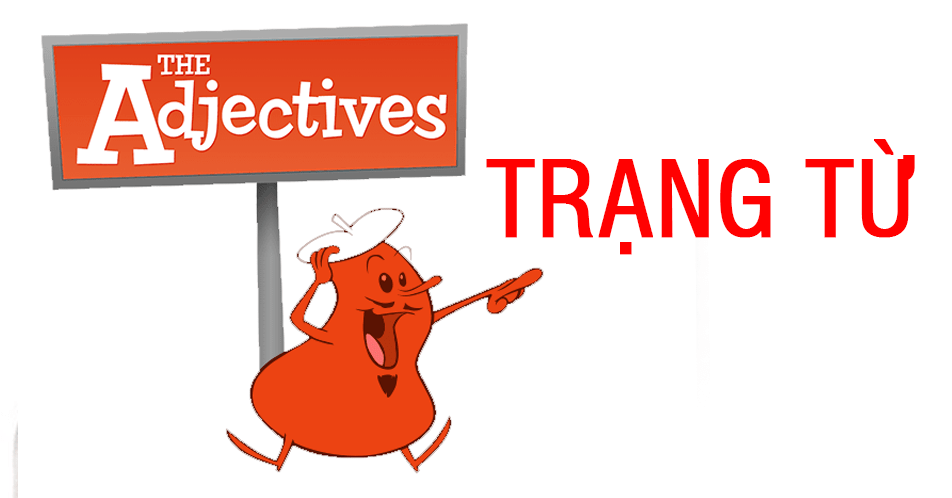Trạng từ và tính từ thường rất dễ bị nhầm lẫn với nhau dẫn tới việc dễ bị sai về mặt ngữ pháp. Việc làm bài tập thường xuyên giúp bạn nhạy hơn trong việc nắm bắt vị trí và cách sử dụng các tính từ, trạng từ từ đó bạn có thể làm những bài tập ngữ pháp dạng này một cách nhanh chóng mà không cần dịch nghĩa.
Dưới đây là bài viết tổng hợp những bài tập tiếng Anh tính từ và trạng từ có đáp án cho các bạn tham khảo
Nội dung
Bài tập 1: Chia từ trong ngoặc tính từ hoặc trạng từ sao cho phù hợp

- He………….reads a book. (quick)
- Mandy is a………….girl. (pretty)
- The class is………….loud today. (terrible)
- Max is a………….singer. (good)
- You can………….open this tin. (easy)
- It’s a………….day today. (terrible)
- She sings the song. (good)
- He is a………….driver. (careful)
- He drives the car. (careful)
- The dog barks. (loud)
Keys:
- Quickly
- Pretty
- Terribly
- Good
- Easily
- Terrible
- Well
- He is a careful
- Carefully
- Loudly
Bài tập 2: Put in the correct word
- Three people were seriously injured in the accident. (serious/seriously)
- The driver of the truck had serious injuries. (serious/seriously)
- I think she behaved very …. .(selfish/selfishly)
- Blossom is …. upset about losing her job. (terrible/terribly)
- There was a …. change in the weather. (sudden/suddenly)
- Nobody at the party was …. dreesed. (colourful/colourfully)
- Jenny likes wearing …. clothes. (colourful/colourfully)
- Alice fell and hurt herself quite …. . (bad/badly)
- Mary says she didn’t do well at school because she was …. taught. (bad/badly)
- 10. Don’t go up that ladder. It doesn’t look …. . (safe/safely)
Keys:
- Serious
- Selfishly
- Terribly
- Sudden
- Colourfully
- Colourful
- Badly
- Badly
- Safe
Bài tập 3: Complete each sentence using a word from the box. You need the adjective or the adverb

careful(ly) complete(ly) continuous(ly) financial(ly) fluent(ly)
happy/happily nervous(ly) perfect(ly) quick(ly) special(ly)
- Our holiday was too short. The time passed very quickly.
- Steve doesn’t take risks when he’s driving. He’s always …. .
- Sue works …. . She never seems to stop.
- Radid and Peter are very …. married.
- Jay’s English is very …. although hhe makes quite a lot of mistake.
- I cooked this meal …. for my mother, so I hope she like it.
- Everything was very quite. There was …. silience.
- I tried on the shoes and he fited me …. .
- Do you usually feel …. before examinations?
- He’d like to buy a car, but it’s …. impossible for him at the moment.
Keys:
- Careful
- Continuously
- Happily
- Fluent
- Specially
- Complete.
- Perfecttly
- Nervous
- Finacially or completely
Xem thêm các bài viết liên quan:
Bài tập 4: Choose the words to complete sentences
| absolutely badly completely changed cheap damagedreasonably seriously slightly enormous ill longunnecessarily unsually planned quite |
- She thought the restaurant would be expensive but it was reasonably cheap.
- Steve’s mother is …. in hospital.
- What a big house! It’s …. .
- It wasn’t a serious accident. The car was only …. .
- The students are normally very lively, but they’re …. today.
- When she returned home after 20 years, everything had …. .
- The film was …. . It could have been much shorter.
- A lot went wrong during their holiday because it was …. .
Keys:
- seriously ill
- absolutely enormous
- slightly damaged
- unsually quite
- complete changed
- unnecessarily long
- badly planned
Bài tập 5: Fill in the blanks with suitable adverbs from the box. Write the kind of adverb against the sentence, the same adverb can be used more than once

| Occasionally | Sometimes | Usually | Rarely | Once |
| Very | Never | Mostly | Often | always |
- They …………….. go to bed at 10 o’clock. (………………)
- I have …………………. been to the USA. (…………………………)
- We have been to Australia just ………………….. (………………………)
- We …………….. take a bath before we go to bed. (…………………)
- My grandparents live in Kerala. I visit them ………
- My friends are ………………… non-smokers. (…………………………………)
- He was …………………… impressed with his performance. (…………………………………)
- I ………………….. go for a walk in the park. (……………………………)
- I watch English films …………………. (…………………………………)
- They …………………. go out. (…………………………………)
Keys:
- They usually go to bed at 10 o’clock. (adverb of frequency)
- I have never been to the USA. (frequency adverb)
- We have been to Australia just once. (frequency)
- We always take a bath before We go to bed. (frequency)
- My grandparents live in Kerala. I visit them often. (frequency)
- My friends are mostly non-smokers. (focusing adverb)
- He was very impressed with his performance. (degree adverb)
- I sometimes go for a walk in the park. (frequency adverb)
- I watch English films occasionally. (frequency adverb)
- They rarely go out. (frequency adverb)
Bài tập 6: Rewrite the complete sentence using the adverb of frequency in brackets in its correct position
- They go to the movies. (often)
- She listens to classical music. (rarely)
- He reads the newspaper. (sometimes)
- Sara smiles. (never)
- She complains about her husband. (always)
- I drink coffee. (sometimes)
- Frank is ill. (often)
- He feels terrible (usually)
- She goes jogging in the morning. (always)
- He helps his sister with her homework. (never)
- I watch television in the evening. (always)
- I smoke. (never)
- I eat meat. (seldom)
- I eat vegetables and fruits. (always)
Keys:
- They often go to the movies. (often)
- She rarely listens to classical music. (rarely)
- He sometimes reads the newspaper. (sometimes)
- Sara neversmiles. (never)
- She always complains about her husband. (always)
- I drink sometimes coffee. (sometimes)
- Frank often is ill. (often)
- He usually feels terrible (usually)
- She always goes jogging in the morning. (always)
- He never helps his sister with her homework. (never)
- I always watch television in the evening. (always)
- I never smoke. (never)
- I seldom eat meat. (seldom)
- I always eat vegetables and fruits. (always)
Bài viết trên TuhocPTE đã tổng hợp tất tần tật các dạng bài tập ngữ pháp về tính từ và trạng từ. Mong rằng qua các bài tập mà TuhocPTE đã chia sẻ ở trên có thể giúp bạn giải quyết các dạng bài tập này nhanh hơn, dễ dàng hơn. Cảm ơn các bạn đã quan tâm theo dõi bài viết!




